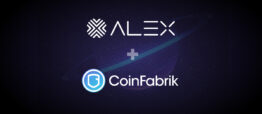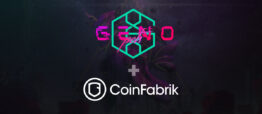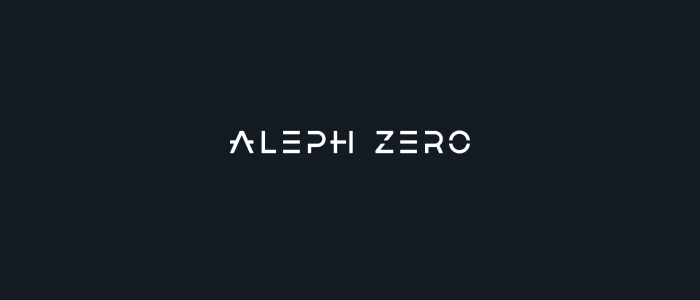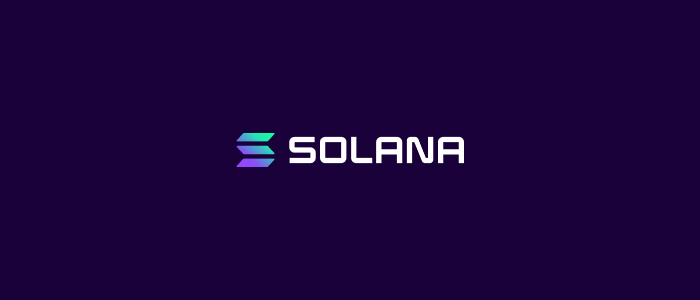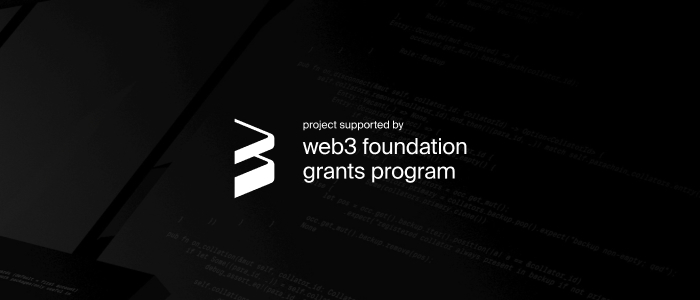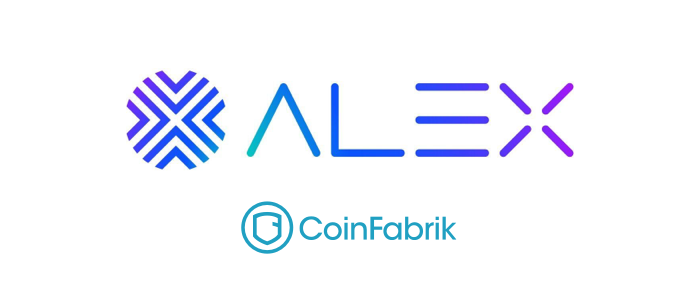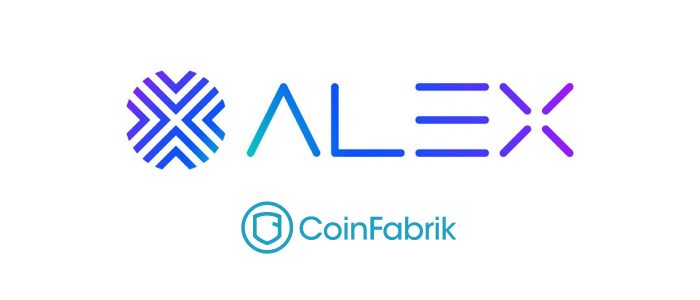Introduction
CoinFabrik was asked to audit the contracts for AlexGo’s DAO project. First we will provide a summary of our discoveries and then we will show the details of our findings.
Scope
The contracts audited are from the https://github.com/MarvinJanssen/executor-dao
and https://github.com/alexgo-io/alex-dao git repositories. The audit is based on the commits aa748ceecbad201c226ecbba4d7111995851e7f5 and9f99127e3aa7487c620982b6f7017c0541a6790d, respectively. alex-dao was forked from executor-dao. The fixes were applied only on alex-dao’s repository and checked on 010c9cf33dae53d4fa2af23dafb5c1b457e44d4c.
The audited contracts are:
● executor-dao:
○ contracts/executor-dao.clar: Core contract, which stores the
extensions and executes the proposals.
○ contracts/extensions/ede000-governance-token.clar:
Extension which adds a governance token.
○ contracts/extensions/ede001-proposal-voting.clar: This
extension adds a voting system for proposals.
○ contracts/extensions/ede002-proposal-submission.clar:
Extension with mechanism to let users submit proposals.
○ contracts/extensions/ede003-emergency-proposals.clar:
Extension with a designated team to make emergency proposals.
○ contracts/extensions/ede004-emergency-execute.clar: This
extension has a set of addresses allowed to execute proposals
without voting on them.
○ contracts/proposals/edp000-bootstrap.clar: Proposal for an
initial construction of the DAO with the basic extensions.
● alex-dao:
○ contracts/executor-dao.clar
○ contracts/extensions/age000-governance-token.clar
○ contracts/extensions/age001-proposal-voting.clar
○ contracts/extensions/age002-emergency-proposals.clar
○ contracts/extensions/age003-emergency-execute.clar
○ traits/extension-trait.clar
○ traits/governance-token-trait.clar
○ traits/ownable-trait.clar
○ traits/proposal-trait.clar
○ traits/sip010-ft-trait.clar
The scope of the audit is limited to those files. No other files in this repository were audited. Its dependencies are assumed to work according to their documentation. Also, no tests were reviewed for this audit.
Analyses
Without being limited to them, the audit process included the following analyses:
● Arithmetic errors
● Race conditions
● Misuse of block timestamps
● Denial of service attacks
● Excessive gas usage
● Missing or misused function qualifiers
● Needlessly complex code and contract interactions
● Poor or nonexistent error handling
● Insufficient validation of the input parameters
● Incorrect handling of cryptographic signatures
● Centralization and upgradeability
Summary of Findings
Two medium issues were found. Also, an enhancement was proposed.
A medium issue was fixed while the other was acknowledged. The enhancementvwas not implemented.
Security Issues

Privileged Roles
These are the privileged roles that we identified on each of the audited contracts.
executor-dao
executor-dao.clar
DAO Deployer
The deployer of executor-dao.clar contract is the only address capable of calling executor-dao::construct(), which executes any proposal. Once this function is called, the deployer address is overwritten by executor-dao’s address, becoming the only which can call the function again.
DAO and its extensions
The DAO and its extensions are allowed to:
- Add, replace, enable and disable extensions.
- Execute any proposal.
ede000-governance-token.clar
DAO and its extensions
The DAO and its extensions are allowed to:
- Mint, burn, transfer, lock and unlock governance tokens without holder
consent. - Set a new token name, symbol, amount of decimals and URI.
ede001-proposal-voting.clar
DAO and its extensions
This role can add new proposals and replace the governance token used in the contract for a new one.
Governance-token holders
Holders can vote for and against the proposals, locking the tokens used for the voting. When the proposal is concluded, they can reclaim their tokens to unlock them.
ede002-proposal-submission.clar
DAO and its extensions
The DAO can modify this extension’s parameters: proposal factor, proposal
duration, minimum and maximum delay to start voting on a proposal.
Governance-token majority holders
The holders with more tokens than the proposal factor can submit new proposals to ede001-proposal-voting.clar extension.
ede003-emergency-proposals.clar
DAO and its extensions
They can modify the emergency proposal duration, add new emergency proposers and modify the block number when no more emergency proposals will be submitted since then.
Emergency proposers
This role can submit emergency proposals, which do not have a start delay and do not require a minimum holding amount.
ede004-emergency-execute.clar
DAO and its extensions
They can add new emergency executors, modify the amount of signals required to execute a proposal, and modify the block number when no more signals will be emitted since then.
Emergency executors
They can add proposals to the contract and emit signals to execute them when a threshold is reached.
alex-dao
executor-dao.clar
This contract does not include new roles besides the ones described for the contract with the same name in executor-dao repository.
age000-governance-token.clar
This contract includes the “DAO and its extensions” role described for its equivalent ede000-governance-token.clar in executor-dao repository, keeping already mentioned entitlements.
Approved contracts
Set of addresses which can mint and burn governance tokens without holder consent.
age001-proposal-voting.clar
This contract does not include new roles besides the ones described for its
equivalent ede001-proposal-voting.clar in executor-dao repository.
age002-emergency-proposals.clar
This contract does not include new roles besides the ones described for its
equivalent ede003-emergency-proposals.clar in executor-dao repository.
age003-emergency-execute.clar
This contract does not include new roles besides the ones described for its
equivalent ede004-emergency-execute.clar in executor-dao repository.
Security Issues Found
Severity Classification
Security risks are classified as follows:
● Critical: These are issues that we manage to exploit. They compromise the system seriously. They must be fixed immediately.
● Medium: These are potentially exploitable issues. Even though we did not
manage to exploit them or their impact is not clear, they might represent a
security risk in the near future. We suggest fixing them as soon as possible.
● Minor: These issues represent problems that are relatively small or difficult to take advantage of but can be exploited in combination with other issues. These kinds of issues do not block deployments in production environments. They should be taken into account and be fixed when possible.
Issues Status
An issue detected by this audit can have four distinct statuses:
● Unresolved: The issue has not been resolved.
● Acknowledged: The issue remains in the code but is a result of an intentional decision.
● Resolved: Adjusted program implementation to eliminate the risk.
● Mitigated: Implemented actions to minimize the impact or likelihood of the risk.
Critical Severity Issues
No issues found.
Medium Severity Issues
ME-01 Lack of Quorum Requirement
Location:
● executor-dao/contracts/extensions/ede001-proposal-voting.clar:124-137
● alex-dao/contracts/extensions/age001-proposal-voting.clar:125-138
Proposals require more votes for than votes against to pass and be executed, without a required minimum participation. This condition might lead to speculation regarding when a proposal would not be noticed (e.g. holidays) or when the token holders would be less likely to vote (e.g. high lock rates and expensive gas fees due to network congestion).
For example, a multiple submission attack can be made with different malicious contracts which can harm the system. Attackers might overload the DAO with these proposals and wait for the last block to vote on the ones which could pass.
Also, emergency proposals, which initially are shorter than the others, can be submitted while another proposal is being voted on. Therefore, the emergency proposal will conclude before the regular one and holders will have not participated because their tokens were locked.
Recommendation
Define and set a quorum requirement for a proposal to pass in the conclude() function.
Status
Acknowledged. This is a design decision and, since the recommendation is a mitigation that does not completely address the issue, the project team decides to continue iterating on the proposal system.
ME-02 Insecure Authentication through tx-sender
Location:
● executor-dao/contracts/ede004-emergency-execute.clar:86
● alex-dao/contracts/age003-emergency-execute.clar:87
Global variable tx-sender returns the original sender of the current transaction, or if as-contract was called to modify the sending context, it returns that contract principal. Using this variable for authentication is not secure. Actors in the system could be targeted for phishing.
This issue affects especially the contracts with emergency executors because, initially, only one signal is required to execute a proposal.
Recommendation
Prefer contract-caller to tx-sender for authentication. contract-caller returns the caller of the current contract context.
Status
Resolved. Fixed according to the recommendation.
Minor Severity Issues
No issues found.
Enhancements
These items do not represent a security risk. They are best practices that we
suggest implementing.
Table

Details
EN-01 Governance Token in Extensions might Differ
Location:
● executor-dao/contracts/extensions/ede002-proposal-submission.clar:45-50
The proposal submission extension has a function to set the governance token as well as the proposal voting extension. Therefore, if the token is replaced, the new principal should be set in both contracts. Since the submission extension depends on the voting extension, the governance tokens must be synchronized.
Recommendation
Instead of the extension having the token principal stored and a setter,ede002-proposal-submission.clar should call the getter inede001-proposal-voting.clar (get-governance-token()). Therefore, the value only needs to be updated in the voting extension.
Status
Not implemented. Since this enhancement would increase the runtime cost, the development team has not implemented it.
Other Considerations
DAO and Approved Contracts can burn any token
The DAO and its extensions, and also a set of approved contracts in the case of alex-dao, are authorized to mint and burn any token, even if it is in users’ possession.
Centralization
As it was mentioned in the Privileged Roles section, the deployer ofexecutor-dao.clar can call construct() and execute any proposal, but only once.
Also, a designated team can add emergency proposals with shorter duration, and another team can execute any proposal without voting on it. These privileges are limited on time, but new proposals can extend it forever.
Upgradeability
Through the implementation of extensions with proposals, the DAO can upgrade its functionalities, adding new extensions and disabling previous ones.
Changelog
● 2022-02-10 – Initial report based on commits:9f99127e3aa7487c620982b6f7017c0541a6790d (alex-dao) andaa748ceecbad201c226ecbba4d7111995851e7f5 (executor-dao).
● 2022-02-21 – Fixes checked on commit010c9cf33dae53d4fa2af23dafb5c1b457e44d4c (alex-dao).
Disclaimer: This audit report is not a security warranty, investment advice, or an approval of the AlexGo project since CoinFabrik has not reviewed its platform. Moreover, it does not provide a smart contract code faultlessness guarantee.



